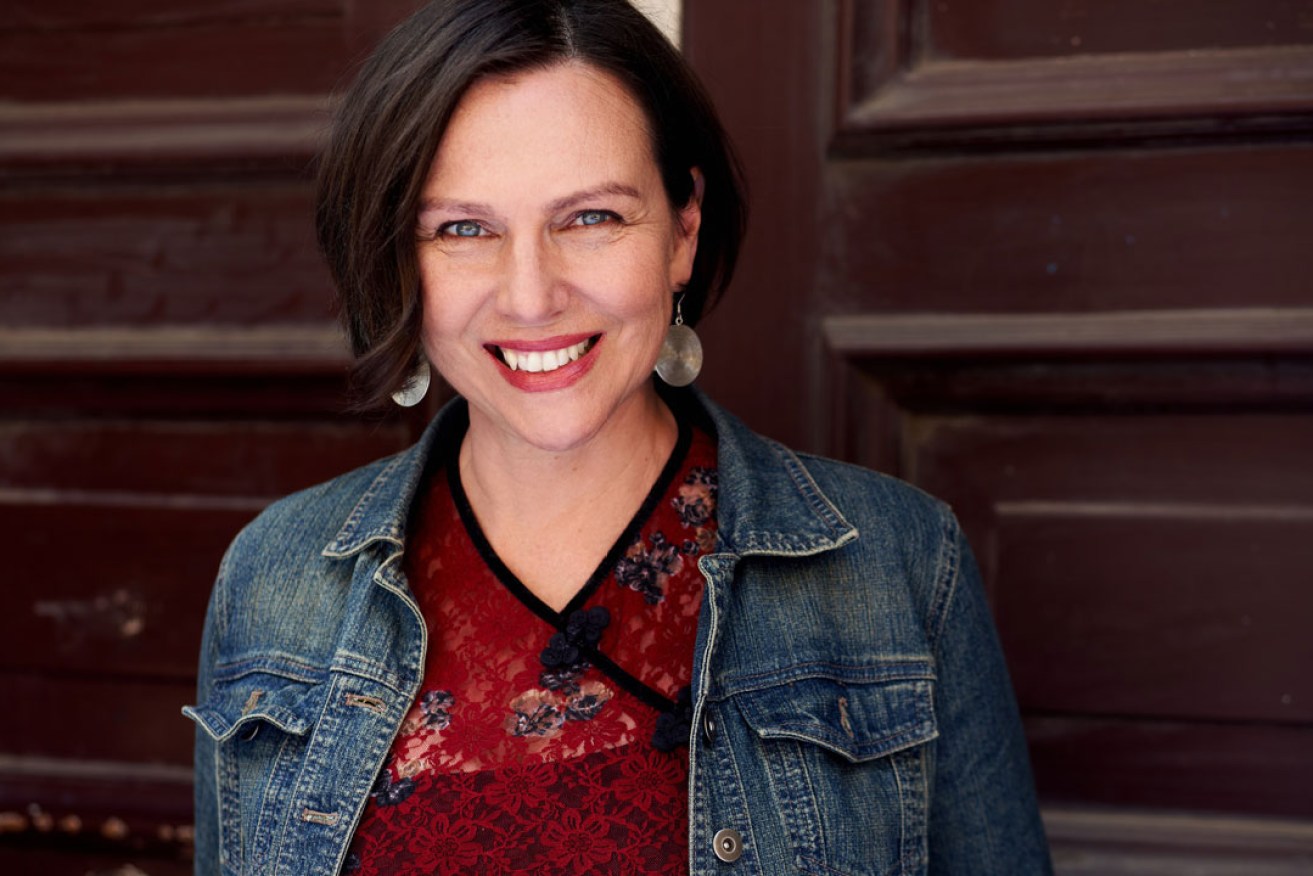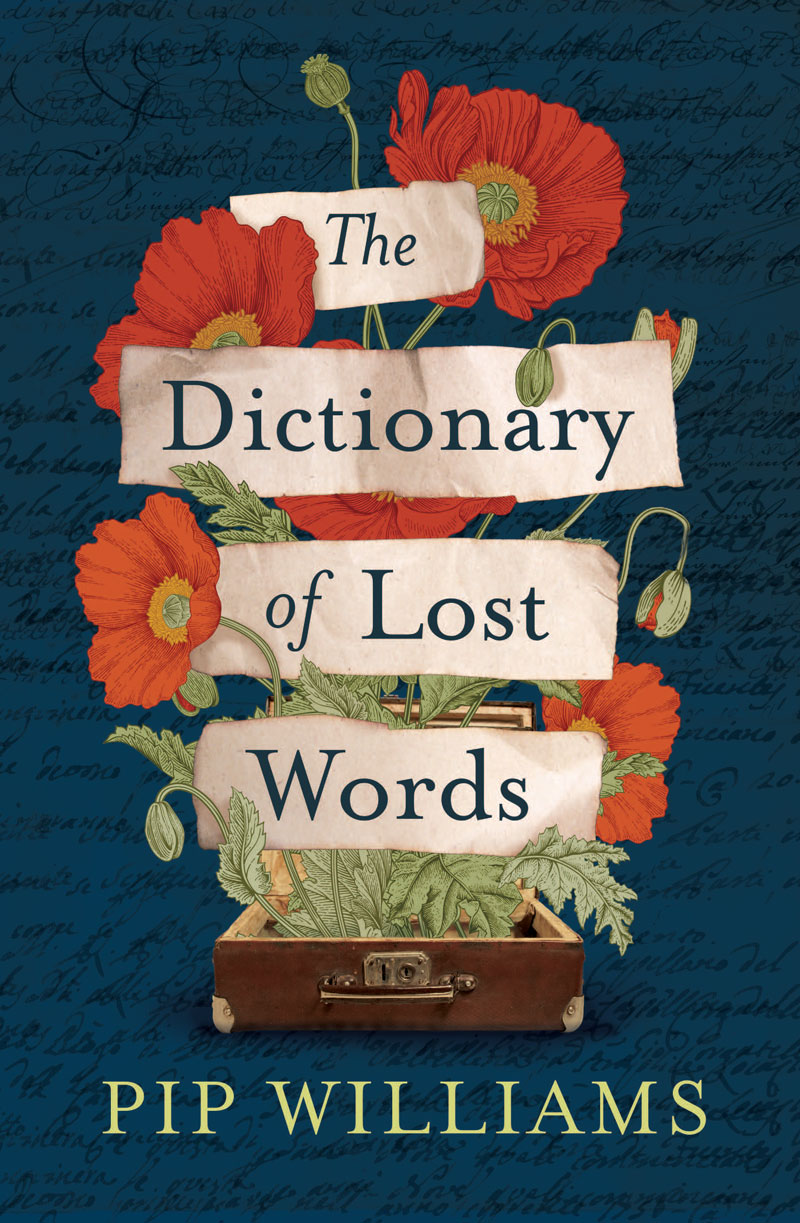Words, women and the Adelaide book that sparked a global frenzy
Adelaide Hills author Pip Williams has had to cancel the launch event and national tour planned for her first novel, but The Dictionary of Lost Words – about the magic of growing up in a world of words – has already garnered huge international interest.

Pip Williams: 'It was a bit dreamlike.' Photo: Andre Goosen
“I didn’t know if the book would be well received, but I did know the idea was good,” Pip Williams says of the frenzy generated by The Dictionary of Lost Words.
“At first I couldn’t believe I had the idea – and then I couldn’t believe no one else had written it.”
That idea revolved around “women’s words” which were neglected or discarded by the men who created the first Oxford English Dictionary in the late 19th and early 20th century, with Williams blending fact and fiction to create an engaging story centred on a curious girl called Esme who grows up in the Scriptorium where the dictionary words are being defined.
The Dictionary of Lost Words is released in Australia today and is published by Affirm Press, which also published Williams’ memoir One Italian Summer.
The rights have been sold to publishers in the UK, the US, Russia, Germany, Spain, Italy, South Korea and the Netherlands after a first draft shared at the Frankfurt Book Fair in Germany last year led to what Affirm describes as an international rights frenzy “not seen for an Australian book since Markus Zusak’s The Book Thief”.
Williams, who lives with her family on a small farm in the Adelaide Hills, says she was initially prompted to start looking into lost women’s words after reading Simon Winchester’s 1998 book The Surgeon of Crowthorne, later retitled The Professor and the Madman.
It is about one of the Oxford English Dictionary’s most prolific volunteer contributors of words and quotations, William Chester Minor (“the madman”), a former army surgeon held in Broadmoor psychiatric hospital in the UK after being convicted of murder, and Sir James Murray (“the professor”), chief editor of the dictionary.
“It was the story of these two men but by reading it and reading between the lines I gathered that the dictionary was a very male endeavour,” Williams says.
The lexicographers were Victorian men “shackled by all of the constraints of their era”.
“They were all middle-class men, living in a society that didn’t allow women to vote…
“Their remit was to include every single word in the English language that was in use or was already out of use – it was an extraordinary goal.”
While some scholars have written about the gendered nature of dictionaries, Williams could find no fiction or creative non-fiction books inspired by the topic.
“I thought, this is such an interesting story … the idea was eating away at me.”
 The Dictionary of Lost Words features a number of characters based on real people – including James Murray – but Esme is a creation of Williams’ imagination. She is the daughter of one of the lexicographers who works for Murray and spends much of her childhood in the Oxford Scriptorium, where the editor’s team is compiling the dictionary based on thousands of words and quotes mailed in by volunteers.
The Dictionary of Lost Words features a number of characters based on real people – including James Murray – but Esme is a creation of Williams’ imagination. She is the daughter of one of the lexicographers who works for Murray and spends much of her childhood in the Oxford Scriptorium, where the editor’s team is compiling the dictionary based on thousands of words and quotes mailed in by volunteers.
Esme’s interest in lost words is piqued when she finds a slip of paper with “bondmaid” written on it under a desk in the Scriptorium. She “steals” the slip and decides to create her own secret dictionary to accommodate other words – many relating to female lives and the domestic sphere – which she sees being discarded, overlooked or inadequately defined.
Williams says some of the criteria for inclusion of words within the Oxford English Dictionary, including that there should be multiple published examples of their use, meant a gender and class bias was inevitable. However, the editors regularly bent the rules when it suited them.
The wonderful term jog-trotty, example, was included in the dictionary, even though there was only one published source – a book by Charles Dickens in which he used it to describe the way a person walked. Conversely, literately appeared in numerous places, yet was left out of the dictionary until the 1990s.
With a background as a social scientist, Williams relished the extensive research required for the novel, especially the opportunity to twice visit the Oxford English Dictionary Archive at the Oxford University Press in England.
“I went there and read all sorts of things – it was such a privilege and so interesting.”
She was given access to fascinating material, including the slips volunteers had sent in with words suggested for inclusion in the dictionary, which play a key role in her story.
“They are bundles of words and were often still tied with the strings that they were tied with over 100 years ago. The paper is deteriorating around the edges in some cases; in others, they’ve been nibbled around the edges by mice.”
While in Oxford, Williams also met with people who shared details that informed her writing, offering insight into how World War I impacted on the Oxford University Press and details about some of those who worked on the dictionary.
One the dictionary’s most diligent volunteers, Edith Thompson, is represented in The Dictionary of Lost Words through the character of Ditte, who is like an aunt and confidant to Esme.
“We know very little about the women who worked on the dictionary,” Williams says.
“Edith Thompson was a very interesting character – she wrote a history of England that was used as a textbook in schools and she wrote a biography about her grandfather. We don’t really know much about her or her sister Elizabeth, yet they contributed more words than just about anybody … she was involved in the dictionary for almost the entire time.”
When the dictionary was finally completed, in 1928, a grand dinner was held in London’s Goldsmiths’ Hall to celebrate, but there was not a single woman among the 150 invited guests. Instead, as a small concession, Thompson and a number of other women who worked on the dictionary for many years – including James Murray’s daughter – were allowed to sit in the balcony of the hall and watch the proceedings.
“That’s why I decided that although I’m making up a lot about Edith Thompson, I wanted to include her – I’ve got around that by giving her the fictional name Ditte.”
It was a bit dreamlike, and in the way of dreams you don’t quite believe it is happening
The Dictionary of Lost Words begins in 1887 and follows the actual timeline of the Oxford English Dictionary, which took around 50 years to complete (the original goal was 10 years, but in the first five years the editors got only to ant).
Its development occurred along the same trajectory as the women’s suffrage movement in the UK, which enabled Williams to weave South Australia into her storyline.
The novel references Adelaide-born suffragist, actress and journalist Muriel Matters, who went to England to pursue her acting career and became influential in the suffrage movement. She gained notoriety when she chained herself to the grille in the Ladies’ Gallery in the House of Commons.
“They were two really important developments in society and it was important to see how they track with each other,” Williams says of the suffrage movement and the development of the dictionary. “And when you’re talking about the suffrage movement in the UK, you can’t not mention South Australia, because we had suffrage before the turn of the century.”
Although Williams knew she had a strong idea for the plot of The Dictionary of Lost Words, she admits she wasn’t certain at the outset that she was the right person to write it. Her previous experience was as a writer of non-fiction, with One Italian Summer telling the story of her family’s search for the good life in Italy, living and working on the farms of strangers.
The novel felt like a big leap, but she enlisted award-winning novelist Toni Jordan (The Fragments) as a mentor, and once Affirm agreed to publish The Dictionary of Lost Words and took the first draft to the Frankfurt Book Fair in November, things moved very quickly.
Among the international publishers who have bought the rights is prestigious Random House London-based imprint Chatto & Windus, which has published numerous celebrated writers. The international editions of the book are expected to be published in 2021-22.
Meanwhile, Williams already has an idea in mind for her next book – possibly a companion publication to The Dictionary of Lost Words – and it’s clear her confidence has grown significantly.
“It was a bit dreamlike, and in the way of dreams you don’t quite believe it is happening,” the pragmatic writer says of her first novel’s early success.
“For a while you’re in a bit of a daze, then life just continues as normal … but it did make me think, for the first time ever – maybe I can be a writer.”
The Dictionary of Lost Words, by Pip Williams, is published by Affirm Press. The COVID-19 pandemic has forced the cancellation of tonight’s planned launch event at the State Library of SA and a national book tour by Williams, but the novel is available from today at SA booksellers and can also be ordered online.




